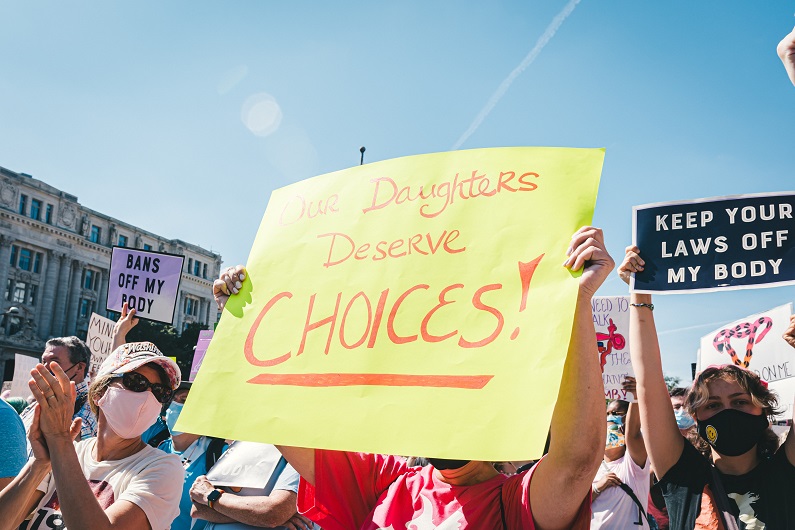With the recent U.S. Supreme Court decision overturning Roe v. Wade, many of us are feeling flooded with emotions, from anger to sorrow to despair.
If you’re feeling the devastation over this very personal choice and right to terminate a pregnancy being controlled by the government, I feel it too.
The emotional journey over these last few days has been layered. I actually felt physically ill over the weekend and struggled to find words to share with you.
While there are many unknowns with how this ruling will play out in each state, we know that the people who will be most affected will be those with the greatest vulnerability and fewest resources.
It seems our work ahead must include the following actions:
- Donate to support local abortion funds and reproductive justice organizations.
- Advocate at the state level to protect abortion, particularly in moderate states.
- Engage in systems of mutual aid to build solidarity and support each other.
Allow yourself to hold space to feel—whether that be alone or in community. Processing with other people can help provide the ground and support to help you determine what actions you can take.
2) Take one small action now.
This is the moment to donate to abortion funds, if you have the financial resources. If you don’t have the means right now, consider sharing information with those that do.
The National Network of Abortion Funds has a list of local abortion funds where you can offer and seek help. It can be exhausting to research organizations, so I’ll also share that Yellowhammer Fund is an abortion fund I’m contributing to monthly. My activist friend, Omkari Williams, has friends involved in this work who know the founders personally.
This is also a time to learn more about what is happening in your own state and how you can get involved in local advocacy groups to protect abortion.
But in the months to come, we’ll need to take an honest look at what we have to offer and expand our actions beyond donations and hopes for policy change.
3) Take inventory of how you can engage in mutual aid.
If you’re unfamiliar with mutual aid systems, according to Dean Spade, trans activist, law professor, and author of Mutual Aid: Building Solidarity During This Crisis (and the Next):
“Mutual aid describes the work we do in social movements to directly support each other’s survival needs, based on a shared understanding that the crises we are facing are caused by the systems that we’re living under, and are worsened by those systems. Mutual aid focuses on helping people get what they need right now, as we work to get to the root causes of these problems.”
You can read about the difference between mutual aid and charity in this article from The Nation.
I spoke with a retreat guest who mentioned that her friend in California set up her home as a sanctuary for people seeking safe abortion. For a moment, I felt bad that we just sold our house in Illinois. Then, I remembered that even if we can’t offer a place to stay, it is my nature to connect people and share resources. I know folks who will offer their home, a ride, or other logistical help.
Consider what you can offer that aligns with your strengths, skills, and resources, but also your time and energy. What resources do you have to contribute? A place to stay? A ride? Your knowledge? Organizational skills? A phone call to help someone in need make a plan?
Reproductive justice organizations are likely being inundated by offers to help right now, as they scramble to adapt to the new reality. I was able to complete an application to volunteer for the Chicago Abortion Fund, but I imagine it will be some time before I receive a response. You may need to check back with your local abortion fund about ways to help in the coming months.
Let’s support each other.
I’m here as a resource and support. If you or someone you know is in need of an abortion, I will do my best to use my knowledge and contacts to help connect you to necessary resources.
I invite you to share resources and ideas with me as well.
May we continue to move forward building collective power and supporting each other in solidarity.
(Photo by Gayatri Malhotra on Unsplash)


Seeking Meaningful Travel Without the Overwhelm?
Success! Look for my welcome email in your inbox. If you don't see it, check your SPAM!